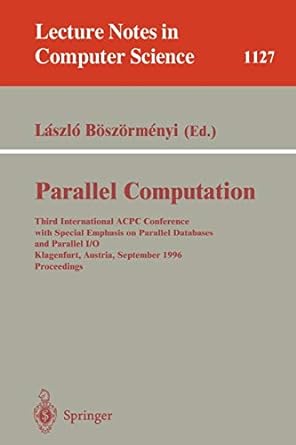Question
Consider a one-relation database with the following attributes: Employee number (emp_no), Date hired (date), Job title (job), Phone number (phone_no), Office number (office_no), Area (area),
Consider a one-relation database with the following attributes:
Employee number (emp_no), Date hired (date), Job title (job), Phone number (phone_no), Office number (office_no), Area (area), Salary (sal), project number (proj_no), Project budget (p_budget), Department number (dep_no), Department budget (d_budget), and Department manager employee number (mgr_emp_no). The following business rules apply:
No employee can manage more than one department at a time.
No employee can work in more than one department at a time.
No employee can work on more than one project at a time.
No employee can have more than one office at a time.
No employee can have more than one phone at a time.
No employee can have more than one job at a time.
No project can be assigned to more than one department at a time.
No office can be assigned to more than one department at a time.
Department numbers, employee numbers, project numbers, office numbers, and phone numbers are all globally unique.
The following functional dependencies also apply:
emp_no g phone, emp_no g office_no, emp_no g dep_no, emp_no g proj_no
{emp_no, date} g job, {emp_no, date} g sal
phone_no g office_no, office_nog area, office_no g dep_no
proj_no g dep_no, proj_no g p_budget
dep_no g mgr_emp_no, dep_no g d_budget
mgr_emp_no g dep_no
Transform this relation into 3 NF. Justify any decomposition.
Step by Step Solution
There are 3 Steps involved in it
Step: 1

Get Instant Access to Expert-Tailored Solutions
See step-by-step solutions with expert insights and AI powered tools for academic success
Step: 2

Step: 3

Ace Your Homework with AI
Get the answers you need in no time with our AI-driven, step-by-step assistance
Get Started


